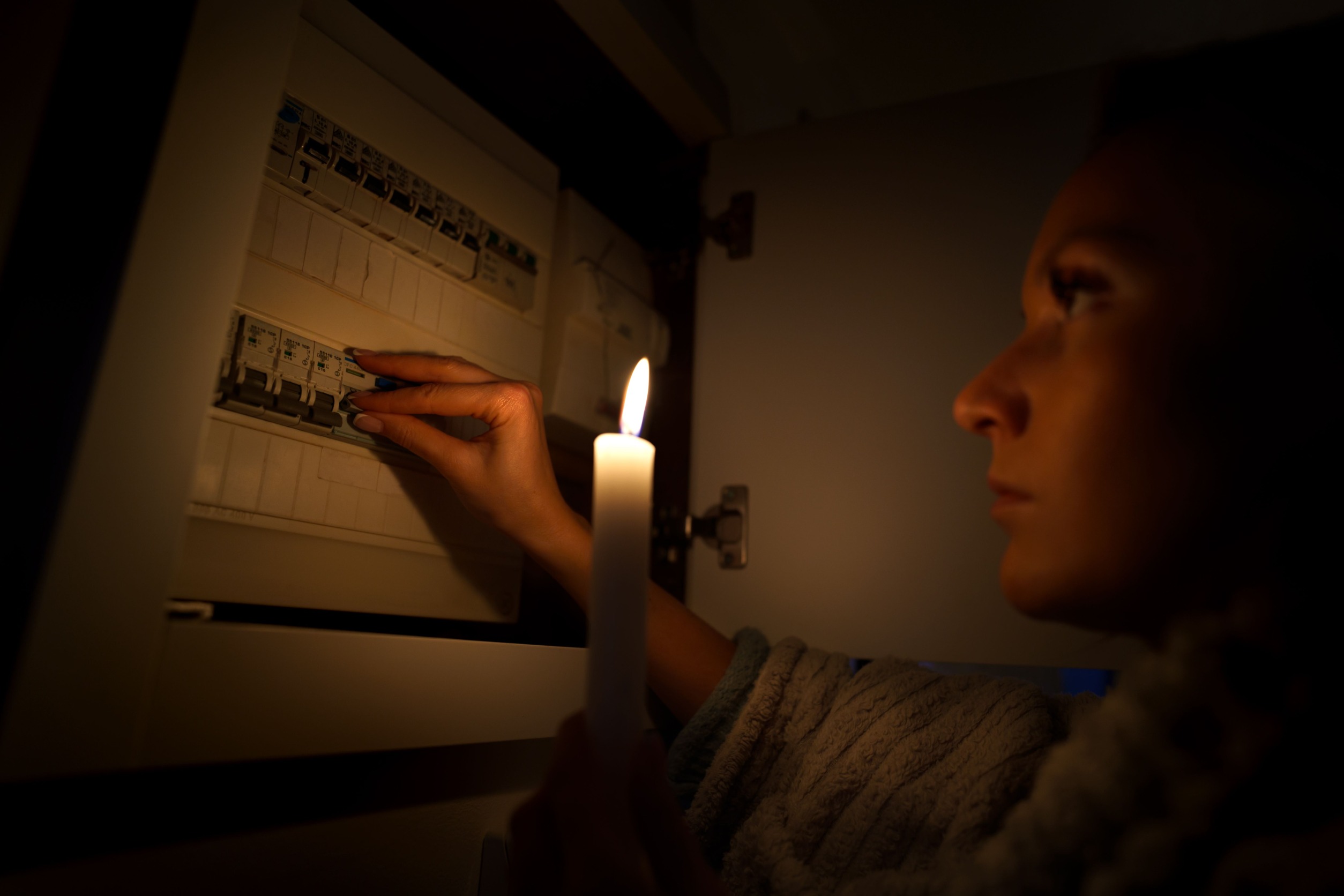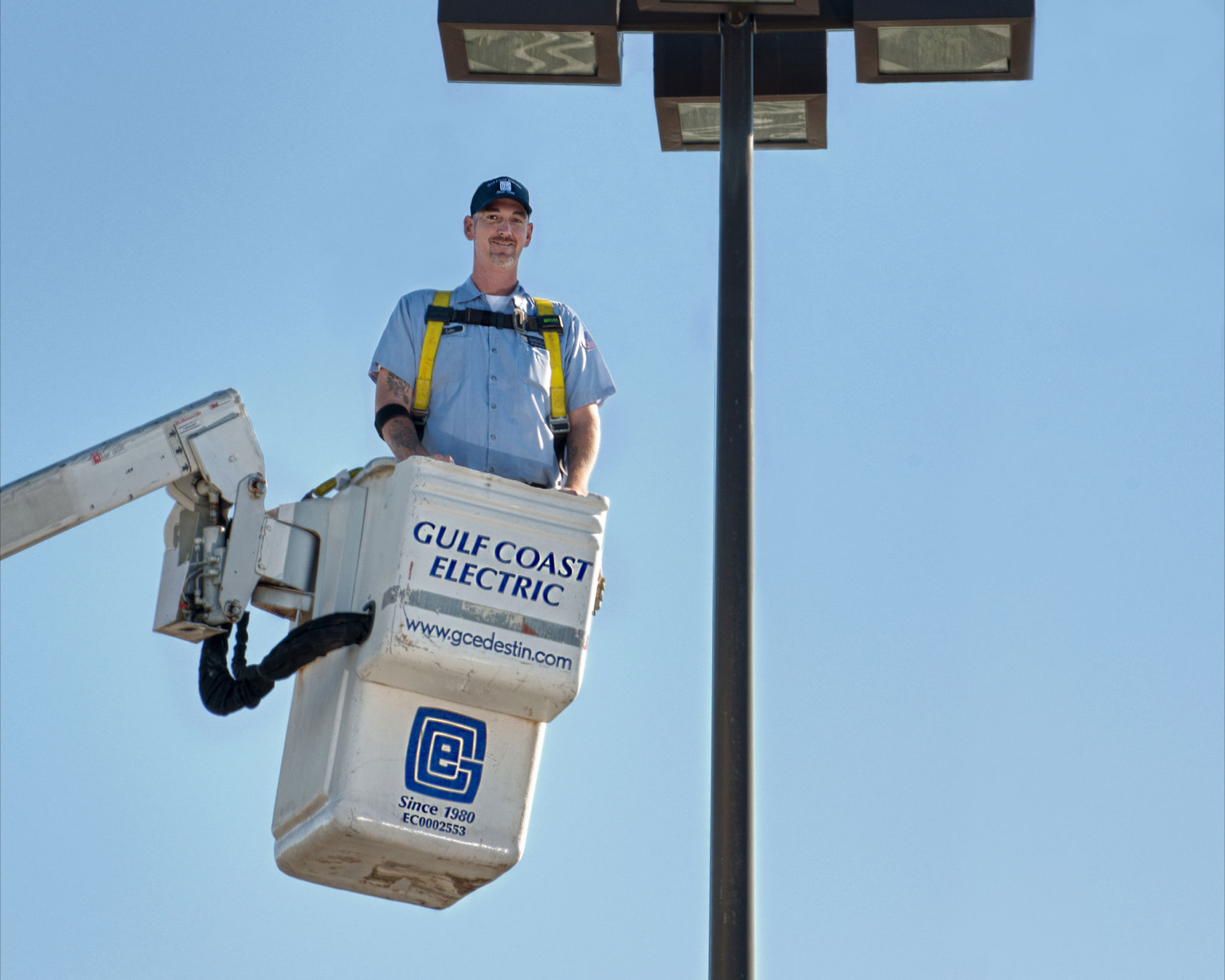Like so many of our home appliances, we tend to take electricity for granted. When we turn on our lights, we expect the bulb to flicker on. When our phones run low, we expect the outlet to serve as a charging station. Almost everything in a modern house relies heavily on electricity, so when the power suddenly goes out, it feels like your life has been turned on its head. Luckily, Gulf Coast Electric is here to answer your questions and provide the services you need.
What Is A Power Outage?
A power outage occurs when the electricity goes out unexpectedly, disrupting your home and possibly the greater community you reside in. Electrical power is temporarily lost and is unable to reach the user. Depending on the scale, they can affect everywhere — from a neighborhood to an entire city.
Electrical Outage Causes
Nature
For the most part, nature is lovely, but sometimes it can be destructive. Power lines and poles are highly vulnerable to the weather. Strong winds can knock over poles and tear through power lines. Extreme temperatures, lightning and natural disasters all cause electrical failure.
Overload
Overloads occur when there is a high power demand. Electric cables, transformers, and other electrical equipment can become overburdened and cause an outage. On a smaller scale, overload may occur with your electrical circuits.
Wildlife
Animals are naturally curious creatures and sometimes find themselves attracted to power outlets because of the warmth they radiate or the humming of electrical outlets. Unfortunately, if they chew through a cord or burrow themselves in a transformer, the damage to themselves and the surrounding area is often disastrous.
Different Types of Outages
There are various types of power outages that occur, which are all caused and fixed in different ways, as seen below.
Blackout
A blackout is a loss of total power in an area, typically affecting all of the people in that entire area. Blackouts usually occur after severe weather causes significant structural damage to electrical facilities.
Depending on the damage and how quickly it can be repaired, a blackout can last anywhere from a couple of hours to several weeks.
Rolling Blackout
Rolling blackouts are planned power outages. Utility companies may use rolling blackouts when the power demand becomes so high that the equipment used to supply this is put at risk for damage. By cutting power off to one area and then another part every couple of hours, the power company can protect against an overload happening.
Brownout
Brownouts are periods of reduced power which never lose power completely. This is a drop in voltage in an electrical power supply system.
Brownouts may be intentional or unintentional — if a utility company is at maximum demand, they may intentionally lower the voltage in certain areas, resulting in a brownout. Other times, brownouts may occur because the need is already maxed, resulting in a voltage drop.
Permanent Fault
Permanent faults are typically caused by a fault in a power line. Out of all the types listed, these are the easiest to fix. Once the part of the faulty power line is repaired, power is restored and does not tend to affect a large area.
Tips For Electrical Failure
- · If anticipating a power outage due to severe weather or other causes, fully charge all devices.
- · Keep your freezer and refrigerator closed.
- · Routinely check that your smoke and carbon monoxide detectors work.
- · Have an emergency kit.
- · If possible, use flashlights instead of candles since candles may risk starting a fire.
- · Consider purchasing a backup generator.
- · Contact your local station in case of an emergency.
Electrical Maintenance And Repair
Whether you’re looking for residential or commercial services, Gulf Coast Electric has the seasoned professionals you need. Contact us today for more information about what we offer!











